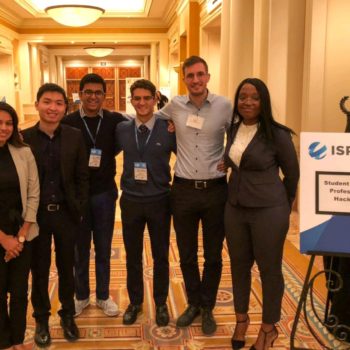
Combination Gene Therapy Treats Age-Related Diseases in Mice
- Posted by ISPE Boston
- On November 13, 2019
A new study from the Wyss Institute at Harvard University and Harvard Medical School (HMS) reports that a single administration of an adeno-associated virus (AAV)-based gene therapy delivering combinations of three longevity-associated genes dramatically improved or completely reversed multiple age-related diseases in mice, suggesting that a systems-level approach to treating such diseases could improve overall health and lifespan. The research is reported in Proceedings of the National Academy of Sciences (PNAS).
“The results we saw were stunning, and suggest that holistically addressing aging via gene therapy could be more effective than the piecemeal approach that currently exists,” said first author Noah Davidsohn, a former Research Scientist at the Wyss Institute and HMS who is now the Chief Technology Officer of Rejuvenate Bio.
The study was conducted in the lab of Wyss Core Faculty member George Church as part of Davidsohn’s postdoctoral research into the genetics of aging. Davidsohn, Church, and their co-authors honed in on three genes that had previously been shown to confer increased health and lifespan benefits when their expression was modified in genetically engineered mice: FGF21, sTGFβR2, and αKlotho. They hypothesized that providing extra copies of those genes to non-engineered mice via gene therapy would similarly combat age-related diseases and confer health benefits.
The team created separate gene therapy constructs for each gene using the AAV8 serotype as a delivery vehicle, and injected them into mouse models of obesity, type II diabetes, heart failure, and renal failure both individually and in combination with the other genes to see if there was a synergistic beneficial effect.
FGF21 alone caused complete reversal of weight gain and type II diabetes in obese, diabetic mice following a single gene therapy administration, and its combination with sTGFβR2 reduced kidney atrophy by 75% in mice with renal fibrosis. Heart function in mice with heart failure improved by 58% when they were given sTGFβR2 alone or in combination with either of the other two genes, showing that a combined therapeutic treatment of FGF21 and sTGFβR2 could successfully treat all four age-related conditions, therefore improving health and survival. Importantly, the injected genes remained separate from the animals’ native genomes, did not modify their natural DNA, and could not be passed to future generations or between living animals.
Church, Davidsohn, and co-author Daniel Oliver are co-founders of Rejuvenate Bio, a biotechnology company that is pursuing gene therapy treatments for dogs. (Source: Wyss Institute Website, 04 November, 2019)



0 Comments